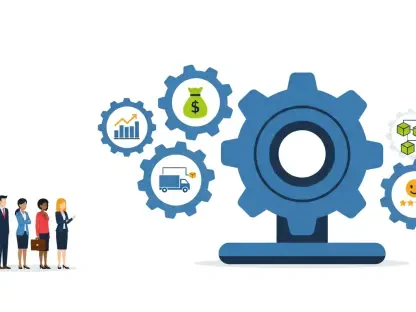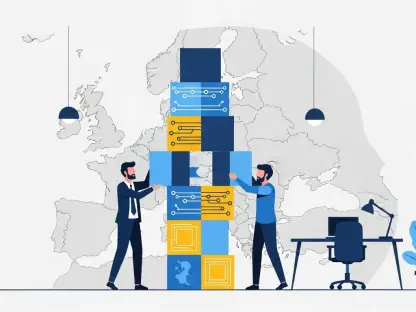In the fast-paced world of food delivery, where every minute counts and customer satisfaction hinges on the final handover, a persistent problem has plagued the industry for years: missing orders during the last stretch of delivery. Imagine ordering a meal after a long day, only to find it never arrives at your door, lost somewhere within the maze of an apartment building or office complex. This frustrating gap in tracking, often due to unreliable GPS indoors, has been a pain point for customers, drivers, and platforms alike. Enter Doorstep, a startup founded by Shashwat Murarka and Sheel Patel, which is stepping up to tackle this challenge head-on with cutting-edge technology. With a fresh injection of capital, the company is poised to transform how deliveries are tracked and verified, promising a smoother experience for everyone involved in the process.
Innovations in Last-Mile Delivery
Bridging the Indoor Tracking Gap
Doorstep’s core innovation lies in its ability to solve the blind spot in delivery tracking that occurs once a driver steps inside a building. Traditional GPS systems often falter in indoor environments, leaving platforms, drivers, and customers without clear visibility of a delivery’s final moments. The startup leverages phone sensors to monitor a driver’s movements—whether they’re entering a lobby, taking an elevator, or navigating hallways—ensuring precise location data right up to the recipient’s doorstep. This technology not only confirms that a delivery has been completed but also automates dispute resolution by providing verifiable proof. For delivery platforms, this means fewer unclear photos or missing order complaints, while customers gain confidence that their food will arrive exactly where it’s supposed to. The seamless integration with major services like Uber Eats and DoorDash further amplifies the potential impact of this solution across the industry.
Enhancing Transparency and Efficiency
Beyond just tracking, Doorstep’s technology brings a new level of transparency to the delivery ecosystem. By feeding real-time data to customer support teams, the system streamlines processes like refunds and complaint handling, reducing friction for all parties. Drivers benefit from clearer validation of their work, which can help protect them in disputes over incomplete deliveries. Merchants and platforms, meanwhile, can rely on accurate information to maintain trust with their user base. This focus on efficiency addresses a critical pain point in an industry where speed and reliability are paramount. As urban environments continue to pose unique challenges with high-rise buildings and complex layouts, Doorstep’s approach represents a scalable solution that doesn’t require expensive hardware installations. Instead, it taps into existing mobile technology, making it a cost-effective option for widespread adoption in a competitive market.
Funding and Future Growth
Securing Capital for Expansion
A significant milestone for Doorstep came with the recent closure of an $8 million seed funding round, a testament to investor confidence in the startup’s vision. Led by Canaan Partners, the round also saw participation from Antler, Cercano Management, Cassius, and Sean Henry of Kleiner Perkins. According to CEO Shashwat Murarka, the fundraising process was intense but remarkably quick, wrapping up in just about a week. This capital injection is set to propel the company from pilot testing into full-scale production, with plans to bolster the team in key areas like engineering and product development. Already operational across all U.S. states, Doorstep aims to refine its technology and expand its reach, though specific client partnerships remain under wraps. This financial backing underscores the growing interest in startups that target niche yet impactful issues within the gig economy and supply chain sectors.
Building Trust Through Scalable Solutions
The funding is not just about growth but also about reinforcing trust among delivery stakeholders. Doorstep’s software-driven model stands in contrast to hardware-based alternatives like building sensors or lockers, which can be costly and slow to implement. By prioritizing mobile sensor data, the startup offers a nimble and adaptable solution that can scale rapidly across diverse environments. Murarka has emphasized the importance of supporting drivers, often seen as the backbone of the delivery industry, by making their roles easier and more reliable through precise tracking. This human-centric approach, paired with a commitment to privacy and security standards, positions the company as a thoughtful player in the market. As the industry shifts toward cost-effective tech solutions, Doorstep’s trajectory suggests it could play a pivotal role in shaping the future of last-mile delivery, particularly in densely populated urban centers.
Reflecting on a Path Forward
Looking back, Doorstep carved out a unique space in the delivery landscape by addressing a long-standing issue with a fresh, technology-driven perspective. The successful $8 million seed round marked a turning point, providing the resources needed to scale operations and refine an already promising tool. What stood out was the startup’s dedication to enhancing trust and efficiency for platforms, drivers, and customers alike. Moving forward, the focus should be on accelerating adoption among major delivery services and continuing to innovate in response to evolving urban challenges. Stakeholders in the industry would benefit from closely monitoring how Doorstep’s software integrates with existing systems over the coming years, as this could set a new standard for transparency. Additionally, exploring partnerships or pilot programs in international markets might offer the next step in proving the scalability of this solution on a global stage.









